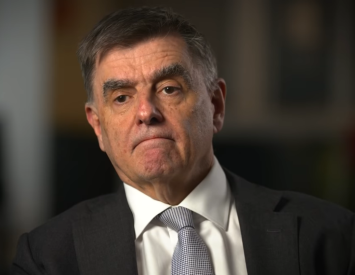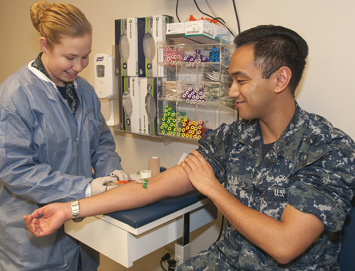To beat the coronavirus, we need to know how it's transmitted.
It is very efficient. It transmits in the air, as health science is now recognising. The virus transmits most efficiently in closed spaces. Many transmit the virus without knowing.
One mistake was to quarantine the infected in airconditioned hotels with windows that do not open. Another mistake was to keep the infected and uninfected together in public housing towers where the residents cannot access fresh air.
These mistakes have incubated the virus.
We must make the second lockdown count. The problem is we have been dazzled by statistics. We have not used common sense. Perhaps it would have helped if we had called the virus SARS-COV-2 rather than COVID-19. One of the best clues to fighting the virus was with severe acute respiratory syndrome (SARS).
During the 2003 outbreak of SARS, there was an important example in Vietnam.
61 patients with SARS were hospitalised in two different hospitals. In the first hospital, extensive transmission of SARS occurred. Five patients died. In the second hospital, there was no transmission and no patients died. The first hospital was a modern air-conditioned hospital with closed windows. The second hospital had spacious rooms, high ceilings, ceiling fans and large windows kept open for cross-ventilation. Fresh air matters.
Common sense tells us that COVID-19, like SARS, represents a problem with the air we breathe.
Most COVID-19 patients have died from lack of oxygen. In an article in the New York Times in April, an emergency doctor Richard Levitan identified the problem. COVID-19 pneumonia initially causes a form of oxygen deprivation called silent hypoxia; silent because it is hard to detect. Normal oxygen saturation for most persons at sea level is 94 to 100 per cent.
COVID-19 pneumonia patients have oxygen saturations as low as 50 per cent. Yet, they do not know it. Many of them are still using their mobile phones minutes before they die.
Levitan said there was a way to detect the oxygen deprivation rather than using a polymerase chain r reaction (PCR) test. It is to use a pulse oximeter, a medical device that can be purchased without a prescription.
As Levitan says, pulse oximetry is no more complicated than using a thermometer. A pulse oximeter is a small device where you place your finger in to get two readings, oxygen saturation and pulse rate. Pulse oximeters are extremely reliable in detecting oxygenation problems and elevated heart rates.
Why are they not being recommended more?
Fresh air is the best ventilator and Australia has plenty of it. We need to open the windows. We need to go for a walk in the fresh air. We need to find ways of hospitalising patients where they can access fresh air.
Most importantly we should not quarantine infected travellers in closed, air-conditioned buildings. In Thailand and Korea, infected travellers without symptoms were separated from the uninfected and quarantined away from population centres. They were quarantined in buildings where the windows open.
Let us use common sense. Separate the infected from the uninfected in buildings where they can get the oxygen they need. Fresh air is the antidote.
A second clue to the virus appeared in an early study from China. A 20-year-old woman, living in Wuhan travelled to Anyang. She met five relatives, four of whom became symptomatic. However, the young woman remained asymptomatic and tested positive only once in four tests.
The virus hides so well that often there are no symptoms and even the tests cannot detect it. The virus is the invisible enemy of the host and those in contact with the host.
Worst of all, most transmissions occur within families in closed spaces.
What this means is that the border is not a line on a map. The border is between you and me. The best way to protect the border is a mask. Masks significantly reduce the risk of transmission. Countries that experienced SARS have all used masks to reduce the spread of COVID-19. Countries that did not use masks in the beginning now mandate masks. We must do the same.
A mask is a statement about the rights of all of us.
We need to use the lockdown to prepare for the time ahead when we are not locked down. Consider simple practical responses like hand sanitisers in public places like railway platforms; signage in public places showing two people breathing particles towards each other; circles on the ground in public parks showing people the need to distance. Powerful messaging is needed.
We need to reinforce that the key is how we breathe and how we distance from each other. We have to change our habits and we can.
More generally, the lockdown represents an opportunity to consider how we deal with congestion, not just on the roads but everywhere. Practical solutions like restaurants with more outside eating areas, timed bookings and time-of-day pricing just like the off-peak pricing used for electricity prices and the internet. We already use time-of-day pricing in early bird parking, pre-theatre dinner specials and off-peak public transport.
We can be more innovative.
There will be more pandemics. China knew that segmentation was necessary, to separate the infected from the uninfected; to separate those with fevers from those without fevers; and to separate those with mild symptoms from those with severe symptoms.
Related Articles
China built temporary hospitals in ten days. We cannot do that. We can, however, develop temporary facilities with good ventilation where COVID-19 patients can be housed separately from other hospital patients. Temporary facilities developed now can be the basis of something more permanent. The example in Vietnam provides a template both for quarantining and the hospitals of the future.
The second lockdown is the time to prepare for when we are not locked down. We cannot return to a third lockdown. We need to be able to breathe again.
Dr Kim Sawyer is a senior fellow in the School of Historical and Philosophical Studies at the University of Melbourne.
Support independent journalism Subscribe to IA.

https://news.google.com/__i/rss/rd/articles/CBMiZGh0dHBzOi8vaW5kZXBlbmRlbnRhdXN0cmFsaWEubmV0L2xpZmUvbGlmZS1kaXNwbGF5L2NvbW1vbi1zZW5zZS1tdXN0LWRpY3RhdGUtY292aWQtMTktcmVzcG9uc2UsMTQxMTPSAQA?oc=5
2020-07-19 06:09:27Z
52780929969237
Bagikan Berita Ini


















0 Response to "Common sense must dictate COVID-19 response - Independent Australia"
Post a Comment